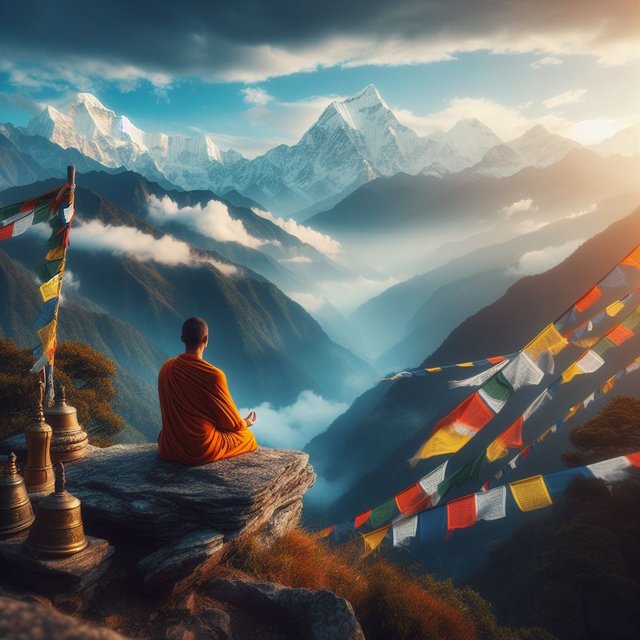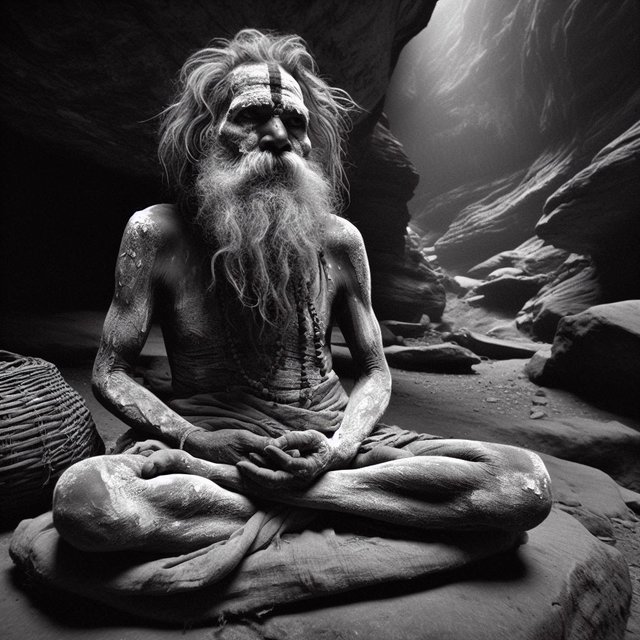Nestled amidst the towering peaks of the Himalayas, Nepal has long been revered as a sanctuary for spiritual seekers and practitioners of meditation. With its serene natural landscapes, ancient monasteries, and rich spiritual heritage, Nepal has earned its reputation as the Meditation Capital of the World. Let's explore why Nepal holds such a special place in the hearts of meditators worldwide, with examples highlighting its unique offerings for those on a spiritual journey.


1. Ancient Spiritual Traditions
Nepal is home to a diverse array of spiritual traditions, including Hinduism, Buddhism, and indigenous Shamanism. These traditions have coexisted for centuries, influencing each other and creating a rich tapestry of spiritual practices. From the ancient Vedic rituals of Hinduism to the profound teachings of Tibetan Buddhism, Nepal offers a wealth of spiritual wisdom for seekers to explore.
Example: Lumbini, the Birthplace of Buddha
One of Nepal's most sacred sites is Lumbini, the birthplace of Siddhartha Gautama, who later became known as the Buddha. Pilgrims from around the world visit Lumbini to pay homage to the enlightened teacher and to meditate in the tranquil gardens surrounding the sacred site of his birth.
2. Himalayan Serenity
The majestic Himalayan mountains serve as a natural backdrop for meditation practice in Nepal. The serene landscapes, crisp mountain air, and peaceful atmosphere create the perfect environment for deepening one's meditation practice and reconnecting with nature.
Example: Kopan Monastery
Perched on a hilltop overlooking the Kathmandu Valley, Kopan Monastery is a renowned center for Buddhist meditation and study. Surrounded by lush greenery and panoramic mountain views, Kopan offers meditation retreats and courses for practitioners of all levels, providing an immersive experience in the heart of the Himalayas.
3. Monastic Traditions
Nepal is home to a vibrant community of monks and nuns who dedicate their lives to the practice of meditation and spiritual development. Monasteries and nunneries dot the landscape, offering retreats, teachings, and opportunities for individuals to deepen their meditation practice under the guidance of experienced masters.
Example: Shechen Monastery
Located in the Kathmandu Valley, Shechen Monastery is a Tibetan Buddhist monastery known for its rich spiritual heritage and dedication to meditation practice. Visitors can participate in daily meditation sessions, attend teachings by esteemed lamas, and immerse themselves in the monastic way of life.
4. Retreat Centers and Ashrams
Nepal is home to a multitude of retreat centers and ashrams that cater to individuals seeking solitude, reflection, and inner transformation. These centers offer a range of meditation retreats, yoga classes, and spiritual workshops, providing a supportive environment for personal growth and self-discovery.
Example: Tushita Meditation Centre
Situated in the scenic hills of Pokhara, Tushita Meditation Centre offers residential meditation courses inspired by the Tibetan Buddhist tradition. With its tranquil surroundings, comfortable accommodations, and experienced meditation teachers, Tushita provides an ideal setting for deepening one's meditation practice and cultivating mindfulness.
Conclusion
In conclusion, Nepal's rich spiritual heritage, pristine natural landscapes, and vibrant monastic traditions make it the ideal destination for meditation enthusiasts from around the world. Whether you're seeking solace in the Himalayan mountains, exploring ancient sacred sites, or immersing yourself in monastic life, Nepal offers a myriad of opportunities for spiritual growth and inner exploration. As the Meditation Capital of the World, Nepal continues to inspire and uplift those on the path of self-discovery and awakening.
Famous Gurus in Nepal
Guru Padmasambhava: Also known as Guru Rinpoche, Padmasambhava is a revered figure in Tibetan Buddhism who is believed to have introduced Buddhism to Tibet in the 8th century. He spent time in Nepal and is associated with several sacred sites in the country.
Swami Pranavananda: A renowned yoga teacher and spiritual leader, Swami Pranavananda founded the Divine Life Society in Nepal. He was known for his teachings on yoga, meditation, and Vedanta philosophy.
Maharishi Mahesh Yogi: The founder of the Transcendental Meditation technique, Maharishi Mahesh Yogi spent significant time in Nepal and established meditation centers in the country. His teachings on meditation and consciousness gained worldwide recognition.
Baba Hari Dass: A yoga master and spiritual teacher, Baba Hari Dass was the founder of the Mount Madonna Center in California, USA. He was born in Nepal and spent many years there, imparting teachings on yoga, meditation, and self-realization.
Anandamurti: The founder of Ananda Marga, a global spiritual and social organization, Anandamurti spent time in Nepal spreading his teachings on yoga, meditation, and social service. His philosophy emphasized self-realization and the welfare of all beings.
Lama Yeshe: A Tibetan Buddhist master, Lama Yeshe co-founded the Foundation for the Preservation of the Mahayana Tradition (FPMT) and established several monasteries and meditation centers in Nepal. He was known for his dynamic teaching style and emphasis on integrating Buddhist wisdom into modern life.
Sri Sri Ravi Shankar: The founder of the Art of Living Foundation, Sri Sri Ravi Shankar has a strong presence in Nepal, where his organization offers courses and workshops on yoga, meditation, and stress management. He is known for his teachings on inner peace and social responsibility.